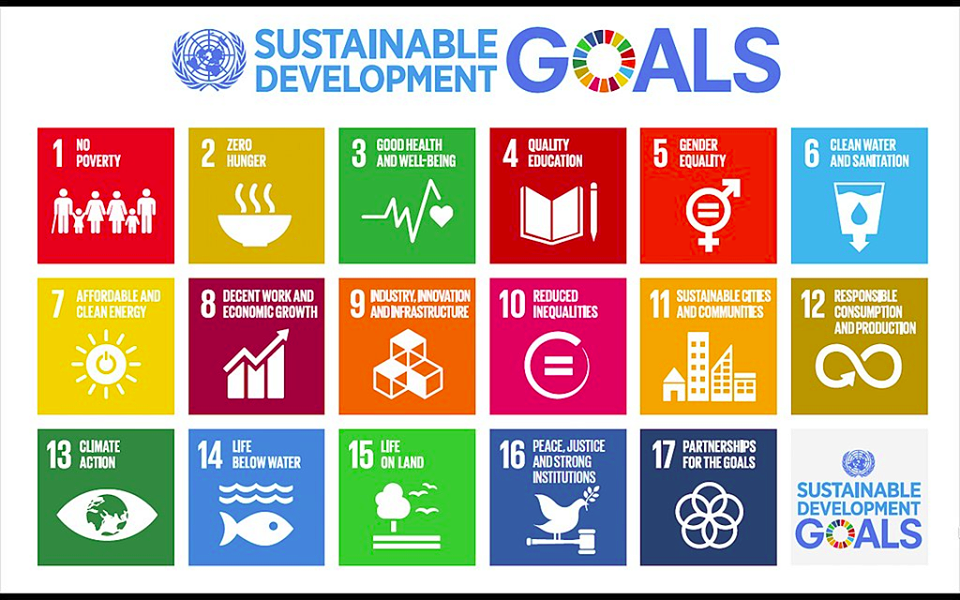Sustainable Development Goals (SDGs)
In 2015 the United Nations adopted 17 Sustainable Development Goals (SDGs) as part of the Agenda 2030 – 17 global political objectives for ensuring sustainable development at the social, the economic, as well as the ecological level. The overriding goal is to enable decent living worldwide – by ensuring economic efficiency under the premise of social justice and the preservation of natural resources.
The SDGs are to be implemented by all countries worldwide by 2030. They cover various fields of action, such as ending poverty, promoting peace, protecting ecosystems, or creating equal opportunities. The 17 goals are linked by the five core messages People, Planet, Prosperity, Peace, and Partnership and are interdependent. They are explained and substantiated by a total of 169 sub-objectives, for the measurement of which a catalogue of indicators was developed and adopted by the United Nations.
The SDGs are addressed to the entire world: to the governments of all states as well as to the economy, sciences, and the civil society. As many of today's challenges are global in scale, they can only be solved globally and through the cooperation of different actors. While the Millennium Development Goals (MDGs), the predecessors of the SDGs, were specifically addressed to developing countries, the SDGs recognize the special responsibility of the leading industrial countries. Nevertheless, the implementation and measurement of the goals is carried out at the national level and on a voluntary basis.
The Virtual Academy Sustainability aims at integrating the sustainability goals into university teaching. In its interdisciplinary courses on sustainability topics a variety of aspects of sustainable development is scientifically examined and placed in a practical context.



